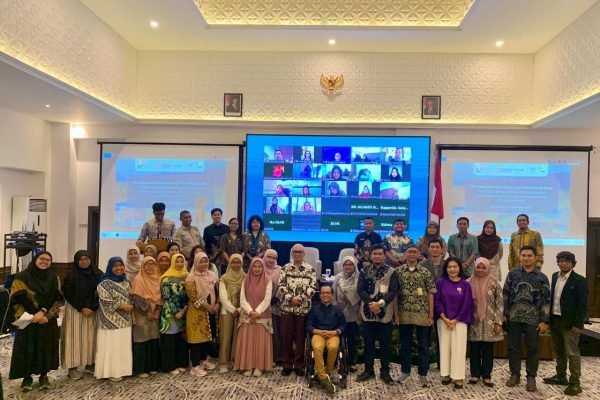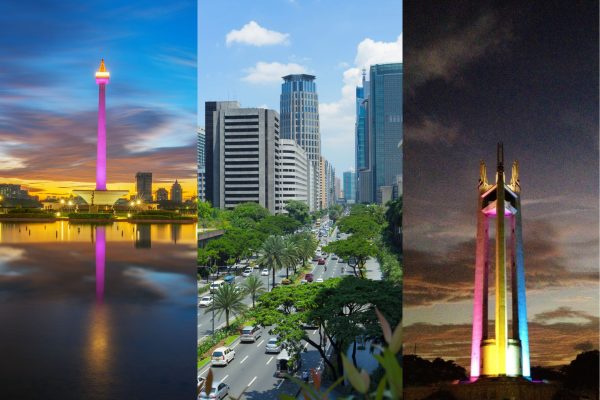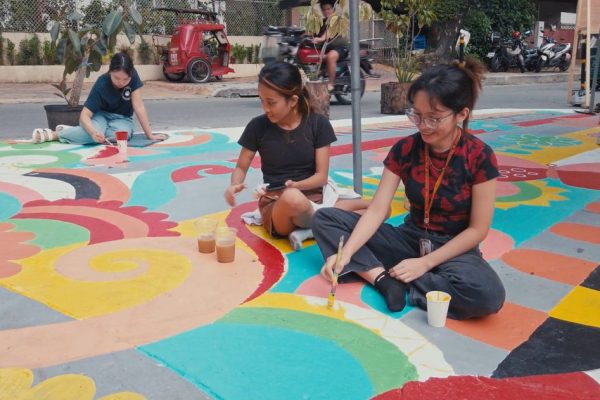Pasig City, Philippines: Representatives from the Seoul Metropolitan Government (SMG) as well as cities of Hanoi, DKI Jakarta, and Pasig — model cities of the Ambitious City Promises project, convened for a two-day workshop last 6-7 December 2018 at the Joy-Nostalg Hotel in Ortigas, Pasig City. The joint project meeting served as a platform to report on the project’s progress, brainstorm about potential pilot interventions, and facilitate city-to-city learning.
As the inspiration behind the Ambitious City Promises project, SMG representatives shared their experiences and learnings while developing and implementing the Promise of Seoul. Launched in 2015, the Promise of Seoul is SMG’s comprehensive strategy and climate action plan to reduce 20 million tons of greenhouse gas (GHG) emissions by 2030 through collective actions from the city along with its citizens and relevant stakeholder groups.
Discussions between model cities and SMG helped further streamline planned activities and incubate ideas which may be replicated in Southeast Asia (SEA) and are grounded from SMG experiences.
Emerging priority sectors and stakeholder groups
One of the goals of the project meeting is to flesh out key ideas which can be developed into pilot project concepts for the model cities. To facilitate this, each project city looked back into the scoping activities and public consultations conducted in 2018 to identify emerging priority urban sectors and stakeholder groups.
For Pasig City, the assessment showed that the city’s priorities lie on transport, air quality, and urban planning and ecology. Consequently, the public consultation conducted in 2018 surfaced solid waste management as a priority among Pasig city stakeholders.
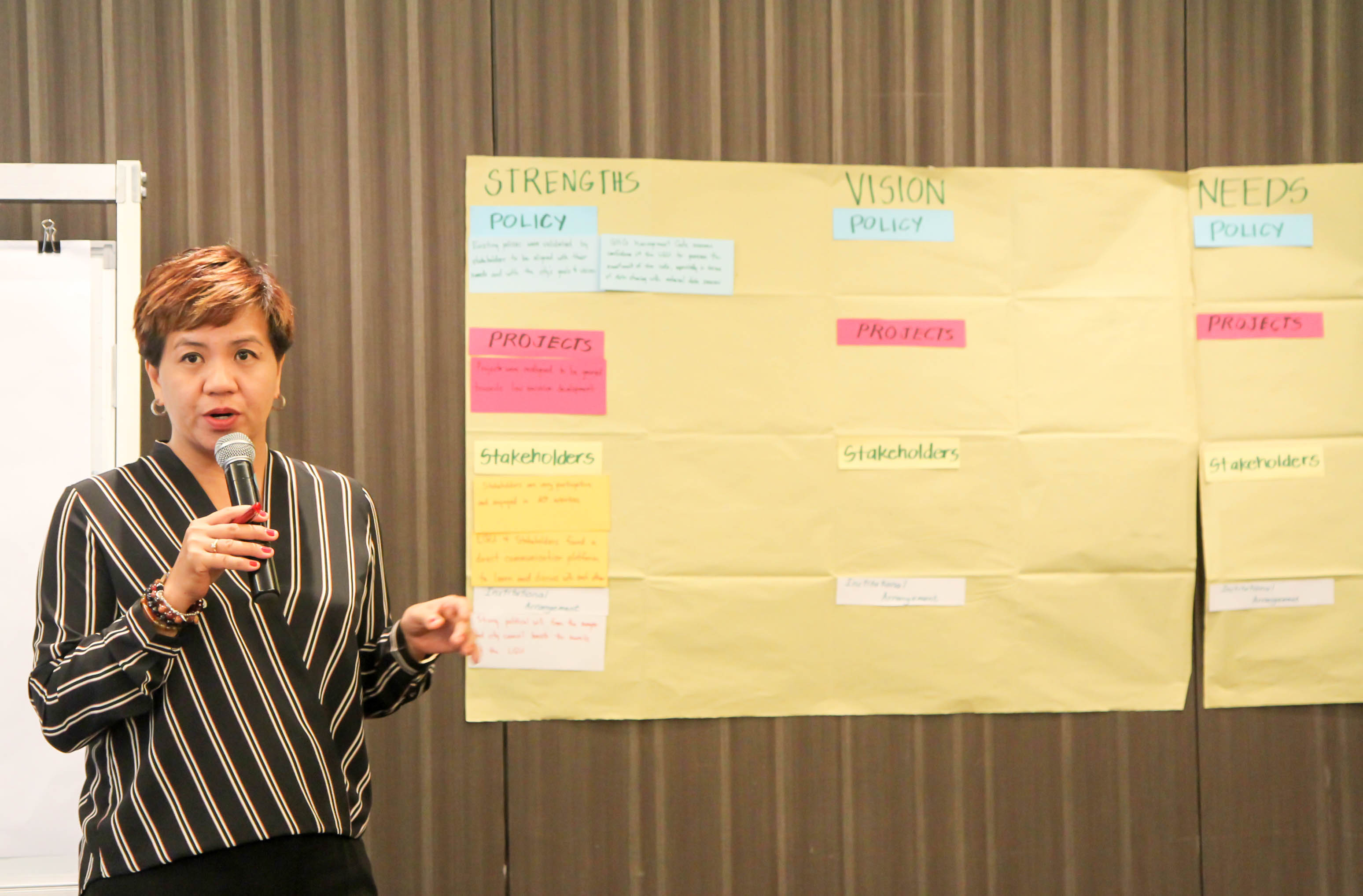
City Environment and Natural Resources (CENRO) head Ms. Raquel Naciongayo shared that the city, with support of the ACP project team, is updating its greenhouse gas (GHG) emissions inventory. Results of the inventory will be used to further prioritize strategies and activities that the city can employ to curb emissions.
Ms. Raquel Naciongayo, head of City Environment and Natural Resources (CENRO), shared that Pasig is envisioning to tap homeowners associations, tricycle drivers and operators associations (TODA), and the barangay as primary stakeholders of their strategies and programs to promote low emission development. To ensure that the effort also touched integral sectoral groups, the city planned to work closely with the youth and business sector as well.
Meanwhile, Deputy Governor of Spatial Planning and Environment Mr. Oswar Mungkasa shared that the DKI Jakarta has declared to reduce their GHG emissions by 30% in 2030. An assessment of their Local Action Plan for Greenhouse Gas Emission Reduction (RAD-GRK) revealed that the city’s priority sectors are energy, transport, and solid waste management.
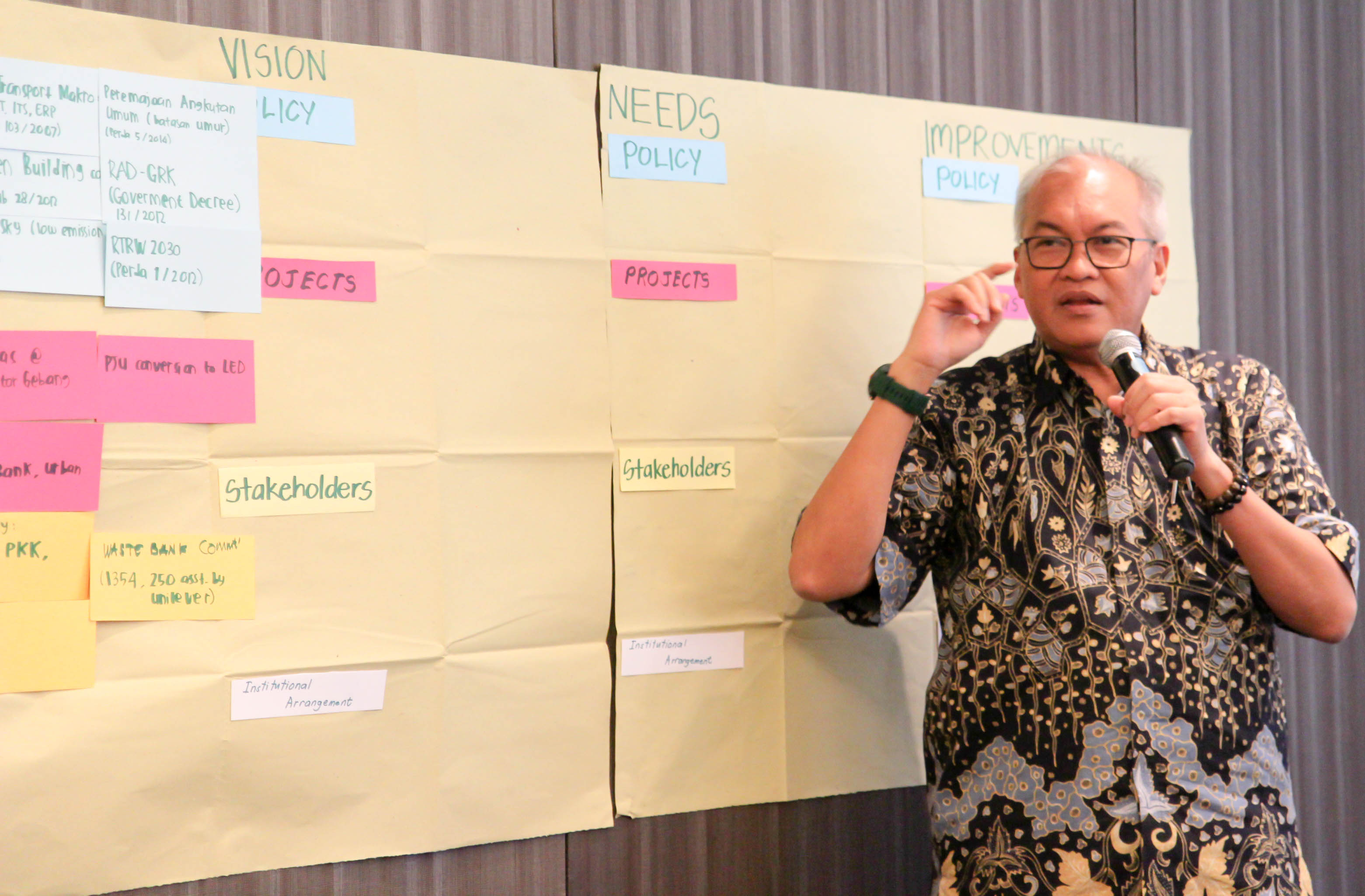
Deputy Governor of Spatial Planning and Environment Mr. Oswar Mungkasa noted that DKI Jakarta envisions to leverage the influence of religious leaders in inspiring the citizens’ engagement and support to city-led low emission development initiatives.
To promote a multi-stakeholder approach to local climate action, DKI Jakarta has identified its own set of priority stakeholders as well. Recognizing the driving force of interfaith cooperation, the city plans to tap into the clout and influence of its religious leaders. This will be complemented with early education and advocacy-building strategies geared towards the youth. Further, the support and engagement of the business sector are also considered integral to the city’s journey towards sustainability.
As the project’s model city in Vietnam, Ms. Le Than Thuy from Hanoi’s Department of Natural Resources and Environment Protection (DONRE) expressed that Hanoi envisions to drive their low emission strategies towards air quality, energy, and transport. In an ambitious move, the city has announced to ban all motorcycles by 2030 as a bid to combat air pollution and to promote low carbon mobility options.
During the workshop, Hanoi expressed its plan to engage key stakeholder groups including non-government organizations and local authorities of the city. Hanoi will also implement awareness-raising programs geared towards the general public.
Taking a tour of Pasig City’s current programs to promote environmental sustainability
As the host city, Pasig City organized a visit to various sites embodying the local government’s innovative strategies to promote environmental sustainability.
The first stop was Maybunga Elementary School where the visitors witnessed how the Greenheart Savers Program is being implemented. Under the Greenhearts Savers Program, students of Pasig City public elementary schools are encouraged to bring their recyclable waste to school where they can exchange these for a modest amount of money. Although the design is quite transactional, the teachers noted that the program complements the students’ lessons about proper solid waste management and basic financial literacy (i.e. save what they get from the Greenhearts Savers Program to buy school supplies such as notebooks and pens).
Taking pride in its programs to promote urban gardening, city representatives took the visitors to the RAVE Rainforest Park. An eight-hectare forest in the midst of the bustling city, RAVE Rainforest Park is home to the largest composting facility run by CENRO. An on-site demonstration was conducted to show how chemical-free compost is made from kitchen scraps, manure, and other organic waste.
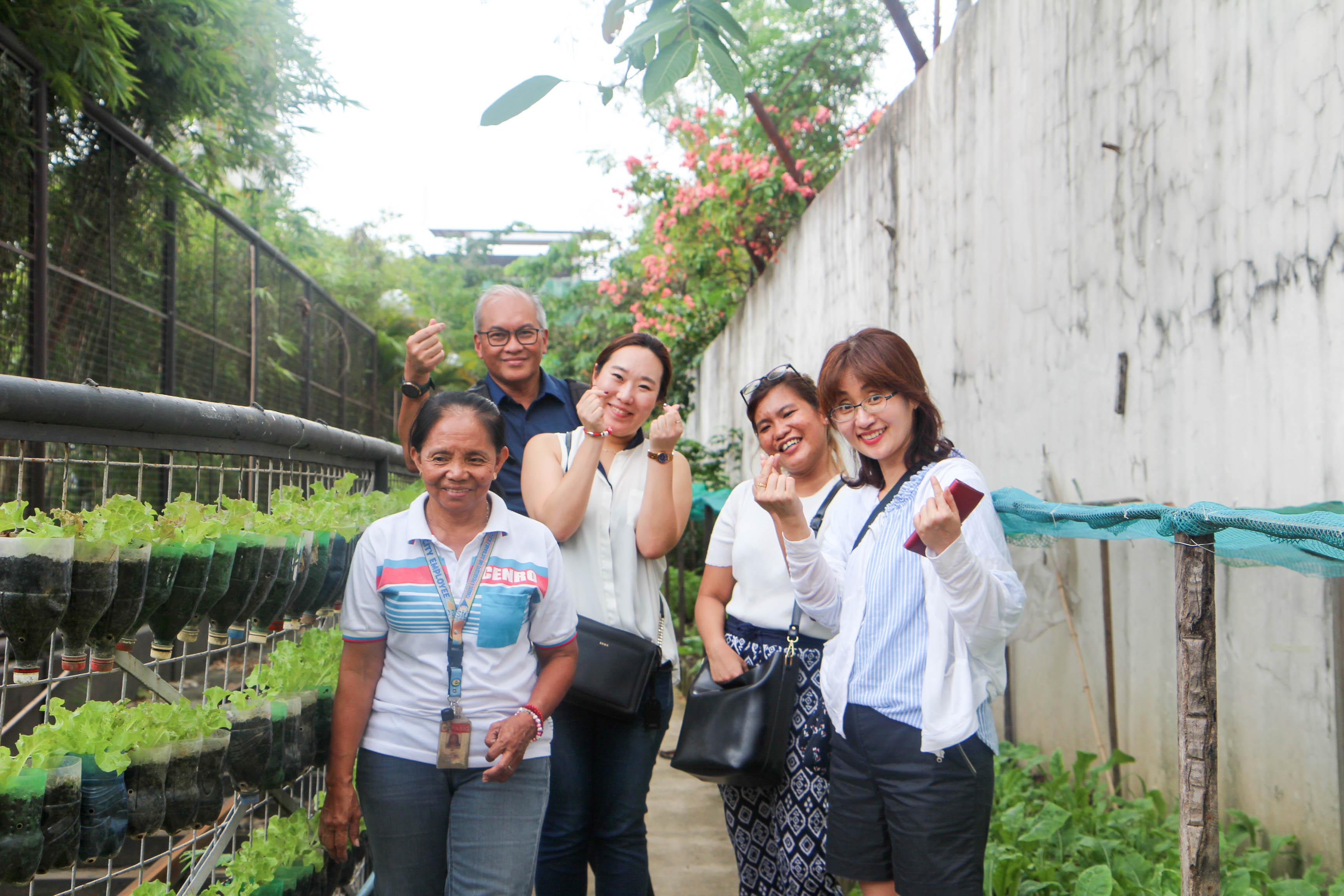
City representatives showed the different plants that they are growing in the RAVE Park. The composting facility at the park provides a steady supply of organic fertilizer for these plants.
The delegation also visited the Pasig City Hall to visit its Command Center (C3). Mr. Ritchie Van C. Angeles, head of Pasig C3, showed the systems and technology that the city is utilizing to collect, manage, and analyze data on traffic, weather, and activities in public spaces in the city. The command center is also responsible for issuing bulletins, advisories, and important announcements in times of disasters. On a daily basis, C3 receives, responds, and processes feedback gathered through social media, website, call and text hotlines, and other channels of the city.
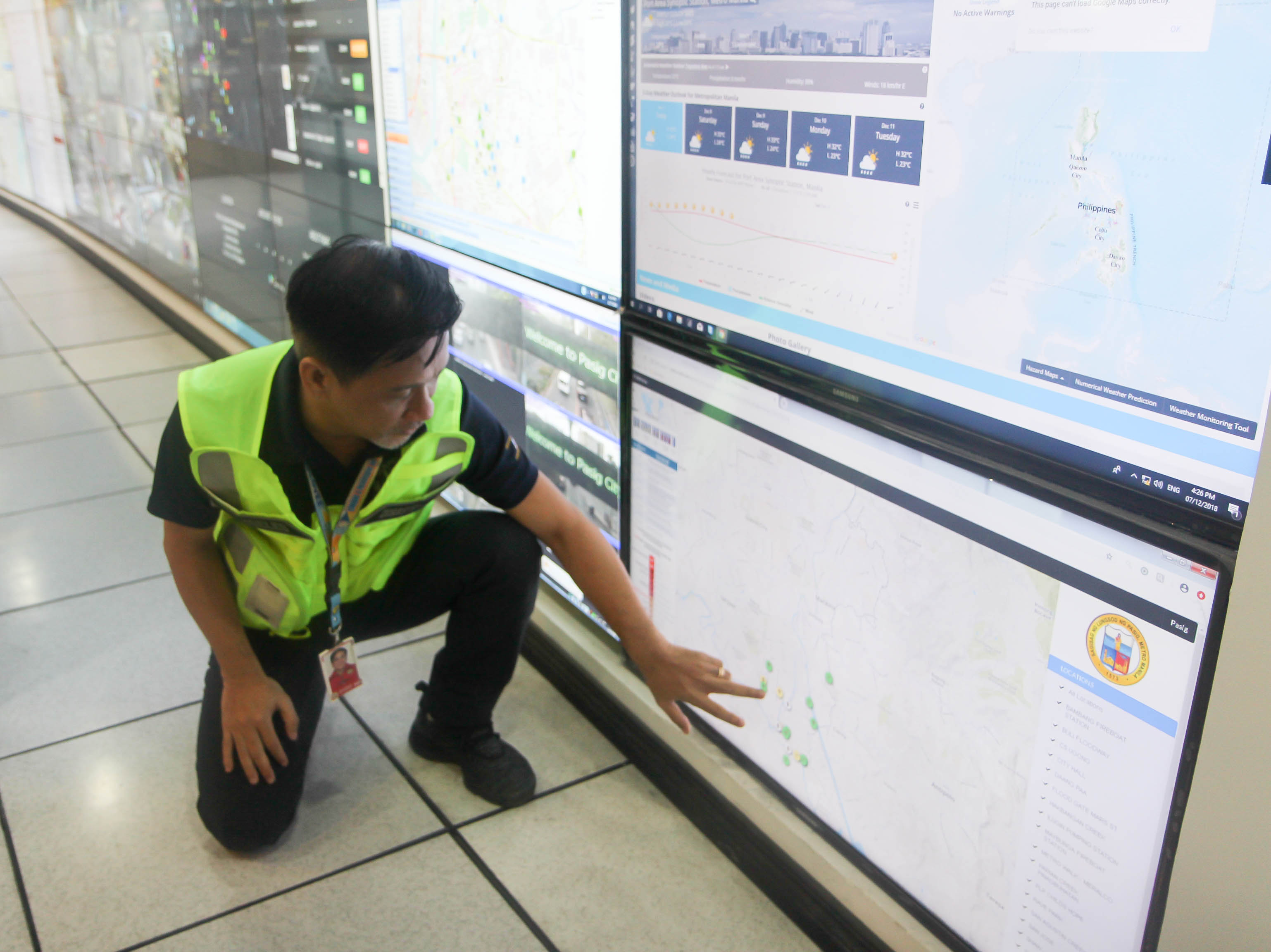
Mr. Ritchie Van C. Angeles noted that data gathered through their system are processed, analyzed, and shared with relevant city departments.
As a way to cap the busy day, the City Transport Development and Management Office of Pasig City invited the delegation to try the bike sharing program that the city is launching in its Central Business District (CBD) by first quarter of 2019. The program envisions to encourage stakeholders in its CBD to try sustainable transport options, specifically bikes, especially if they are making short trips around the area. The Pasigreen Bike Sharing program will commence with a pilot test of 100 bikes and 10 stations in the CBD.
The ACP is a 3.5-year international project supporting cities in Indonesia, Philippines, and Vietnam to formulate local climate action plans directed by concrete targets, enhanced multi-stakeholder engagement, and integrated strategies. It is funded by the German Federal Ministry for the Environment, Nature Conservation, and Nuclear Safety (BMU) through the International Climate Initiative (IKI) program. SMG also serves as supporting project partner.


